10 Best Heylama Alternatives to Master English
Heylama is a flexible platform that combines structured exercises with interactive conversation practice, making it a popular choice for English learners. But depending on your goals—whether you want business-oriented dialogue, culturally immersive learning, or advanced pronunciation feedback—other tools might serve you better.
In this guide, we explore ten of the best Heylama alternatives in 2025, each offering unique approaches to mastering English.
Midoo AI

Midoo AI approaches English learning as a journey, not just a series of lessons. Instead of static exercises, it continuously reshapes your learning plan based on your performance, habits, and goals. Every interaction is context-aware, meaning the app recalls your past errors and integrates them into future tasks.
Its conversation mode mimics natural human unpredictability—you might be discussing travel plans today and negotiating a work contract tomorrow. This variety builds real adaptability, something textbook dialogues can’t provide.
Midoo also reinforces retention by strategically spacing review sessions and focusing on the areas that trip you up most often. This keeps progress steady and measurable.
Pros
- Adaptive learning plans with long-term tracking
- Natural, unpredictable conversation practice
- Intelligent review system for lasting retention
- Context-aware error correction
Cons
- Requires internet for full features
- Less community-driven interaction
Boost your English learning with Midoo AI — personalized, engaging, and built for real progress.
Talk Pal
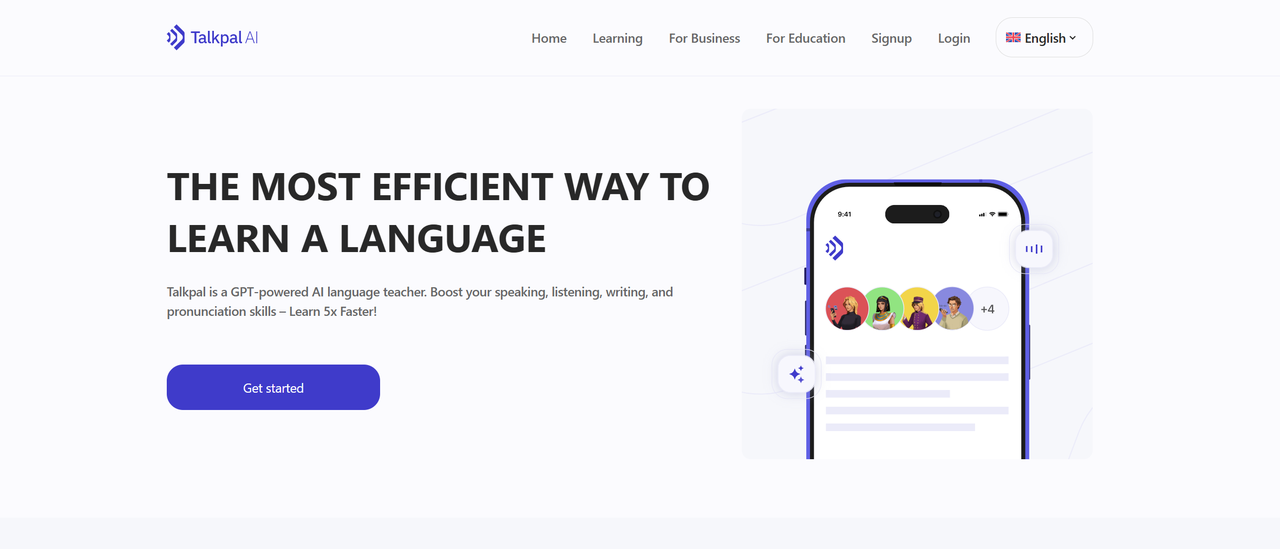
Talk Pal’s main appeal is its conversational comfort. It keeps exchanges casual and approachable, ideal for learners who freeze under test-like pressure. Instead of correcting every small slip instantly, it focuses on keeping the dialogue moving.
You can select topics from a wide range—travel, hobbies, or even hypothetical scenarios—allowing you to practice in situations that matter to you. Its pacing feels human, giving you time to think without breaking rhythm.
Perfect for those who value low-pressure, realistic conversation practice.
Pros
- Wide variety of conversation topics
- Low-pressure learning environment
- Human-like pacing
Cons
- Limited grammar explanations
- Fewer structured lessons
Loora
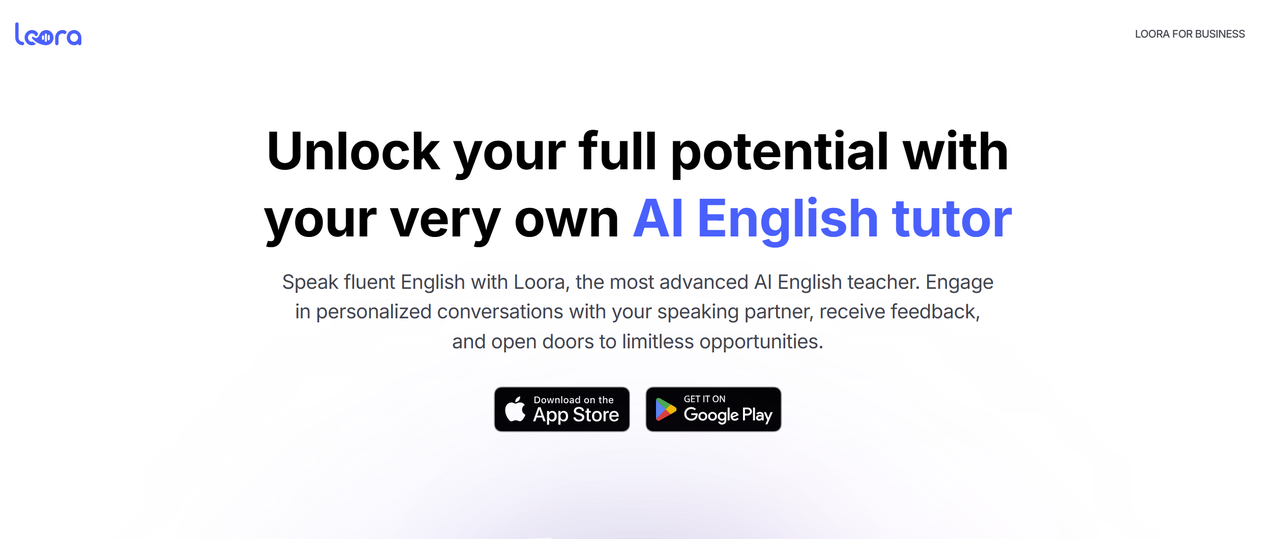
Loora is tailored for ambitious learners aiming to thrive in professional English environments. Its scenarios include client meetings, presentations, and interviews, with AI designed to challenge your vocabulary and clarity under pressure.
The platform encourages concise, confident responses—a valuable skill in both business and academia. You’ll also receive direct, time-stamped pronunciation corrections.
This makes Loora particularly useful for those preparing for high-stakes, formal communication.
Pros
- Strong business and academic focus
- Pronunciation corrections with timestamps
- Pressure-based fluency training
Cons
- Casual topics are less emphasized
- Premium plan needed for full scenario range
Praktika
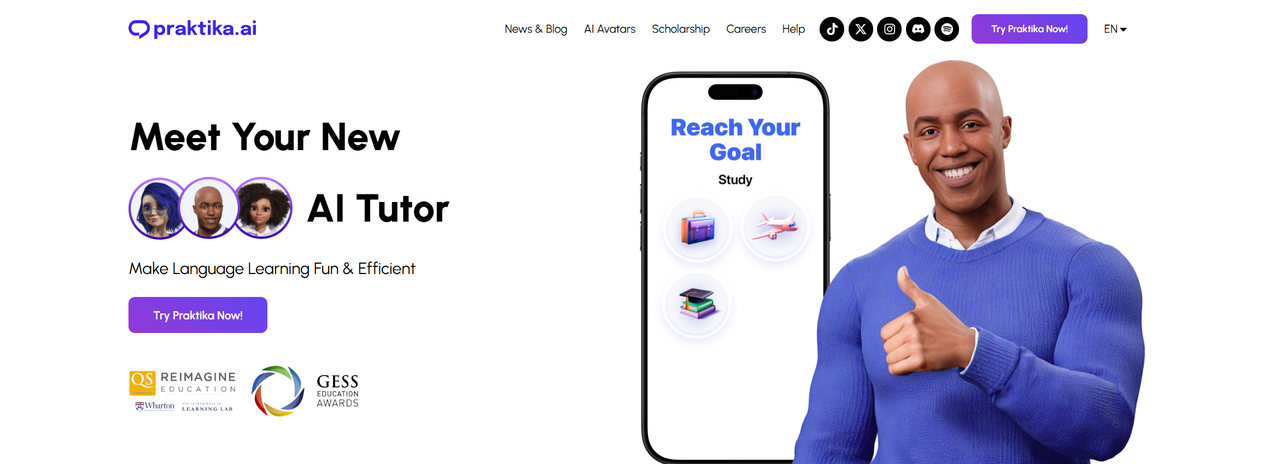
Praktika’s hook is its game-like learning system. You’re not just taking lessons—you’re completing missions, unlocking levels, and collecting rewards. This design makes it easy to practice daily without it feeling like “study time.”
Its missions span from everyday small talk to themed role-play challenges, keeping content varied and entertaining. The AI feedback ensures that fun doesn’t come at the cost of improvement.
Best for learners who struggle with motivation in traditional lesson formats.
Pros
- Gamified missions and rewards
- Wide range of role-play scenarios
- Feedback integrated into gameplay
Cons
- May feel too light for serious exam prep
- Some exercises repeat frequently
Langotalk
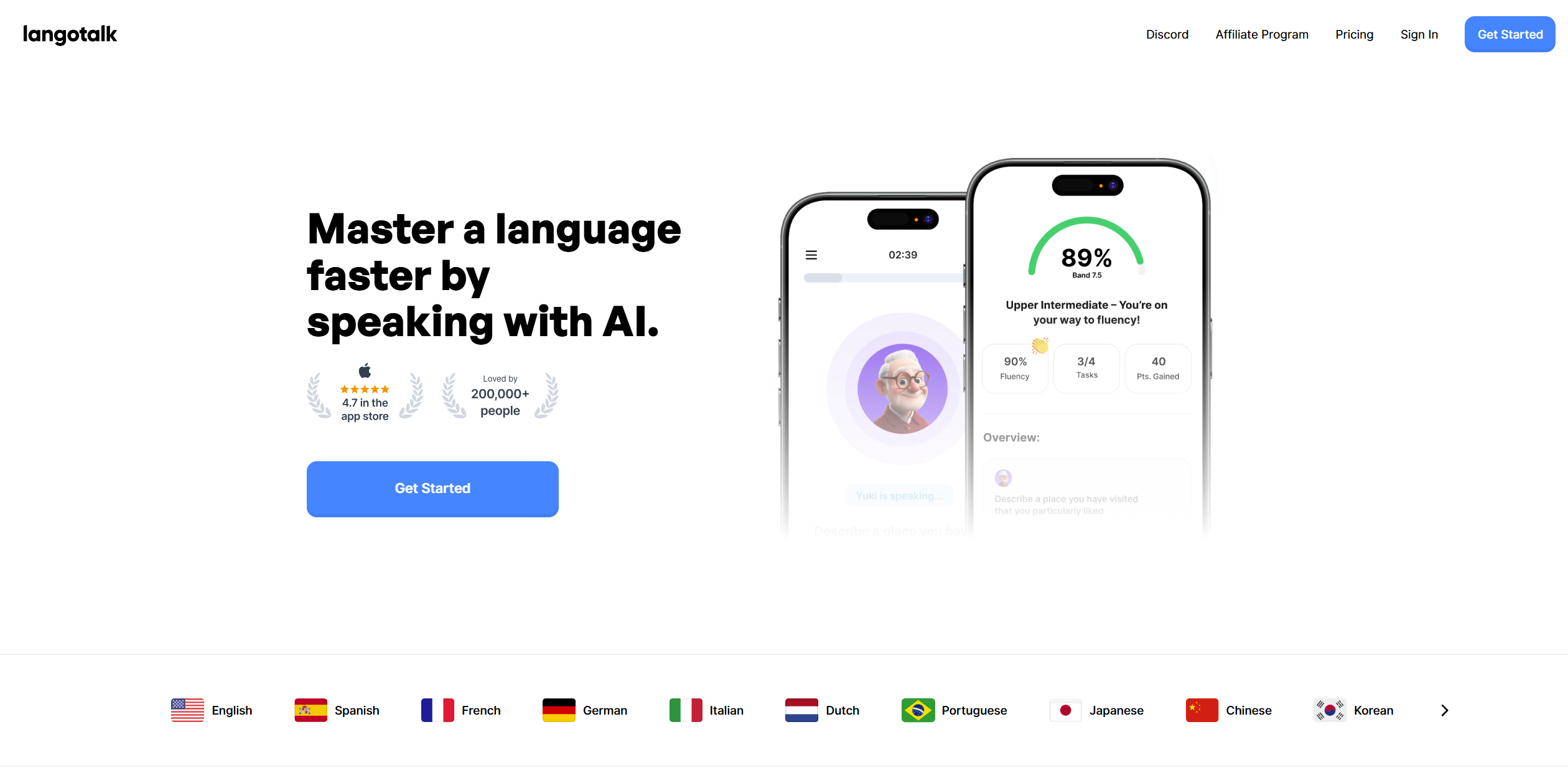
Langotalk’s strength is speed—it gets you speaking within minutes of signup. There’s no long onboarding, just an immediate jump into real-time AI conversations.
Its quick-start approach suits learners who don’t want heavy structure but still want useful feedback afterward. Post-session summaries show vocabulary you used and mistakes you made, making it easy to review.
Great for people who value efficiency and spontaneous practice.
Pros
- Instant conversation start
- Post-session summaries
- Minimal onboarding process
Cons
- Less structured skill progression
- Limited grammar-focused content
Lucida AI
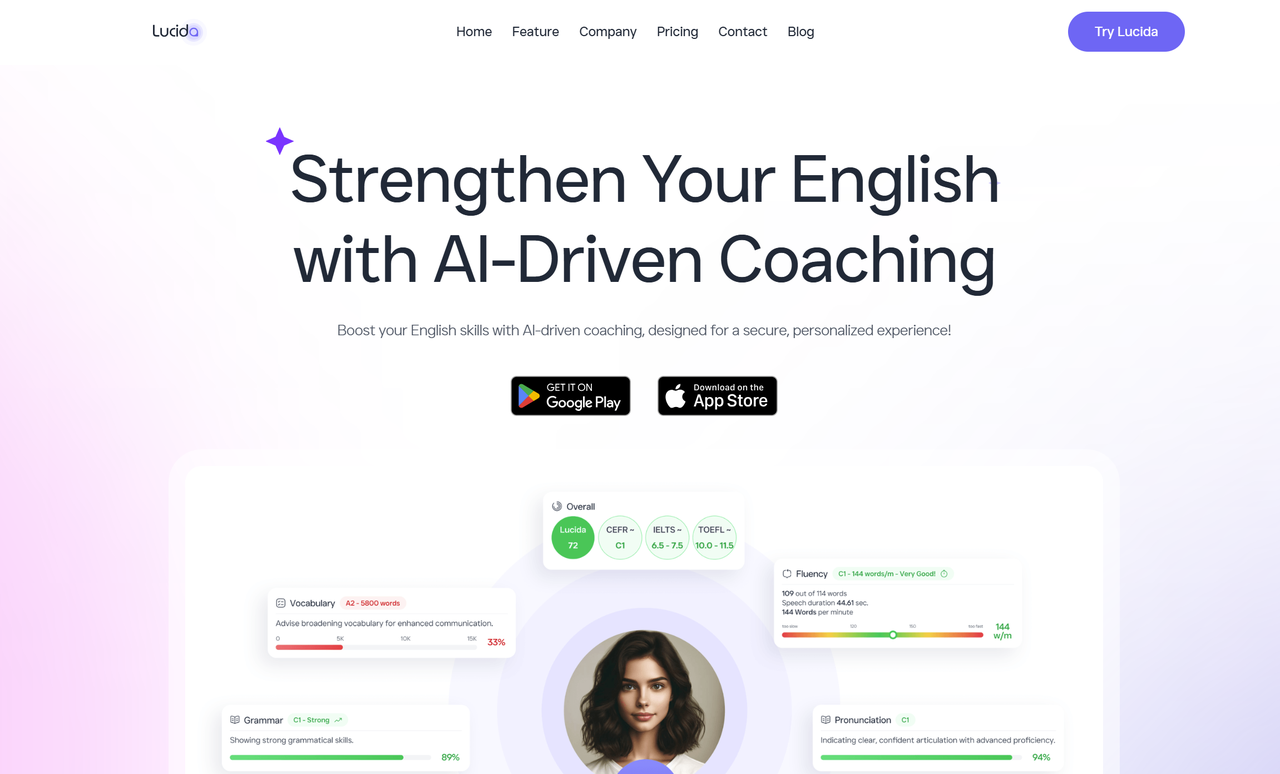
Lucida AI builds fluency by training you to think in English rather than mentally translating. Conversations flow without constant interruption, and feedback is saved for the end so you can stay immersed.
The AI uses follow-up questions and subtle nudges to keep you elaborating, making conversations feel authentic. Over time, you’ll notice you respond faster and more naturally.
Perfect for learners ready to push beyond basic sentence construction.
Pros
- Encourages thinking in English
- Immersive, uninterrupted dialogue
- Follow-up questioning to deepen responses
Cons
- Not beginner-friendly
- Limited grammar instruction
Fluently
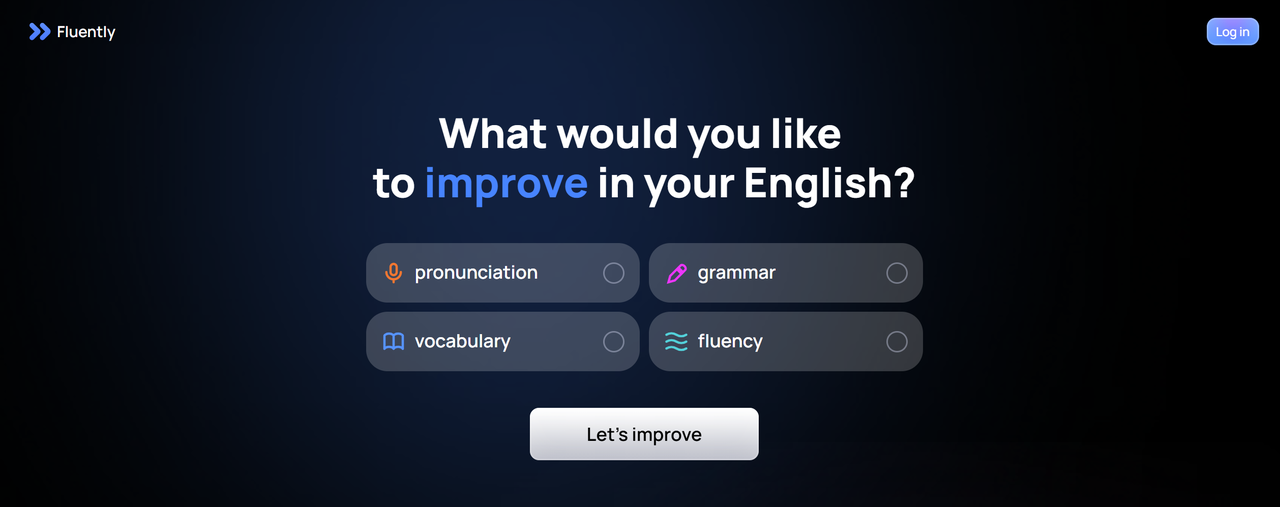
Fluently zeroes in on pronunciation and clarity. Its voice analysis tech can detect even small articulation issues, helping you refine your accent for better understanding in international settings.
It uses visual cues and slow-motion mouth animations so you can replicate correct speech patterns. Sessions are short, making it easy to slot into your daily routine.
Best for learners aiming for crisp, confident spoken English.
Pros
- Advanced pronunciation detection
- Visual and slow-motion speech guides
- Quick daily sessions
Cons
- Narrow focus on pronunciation
- Minimal vocabulary teaching
Toko
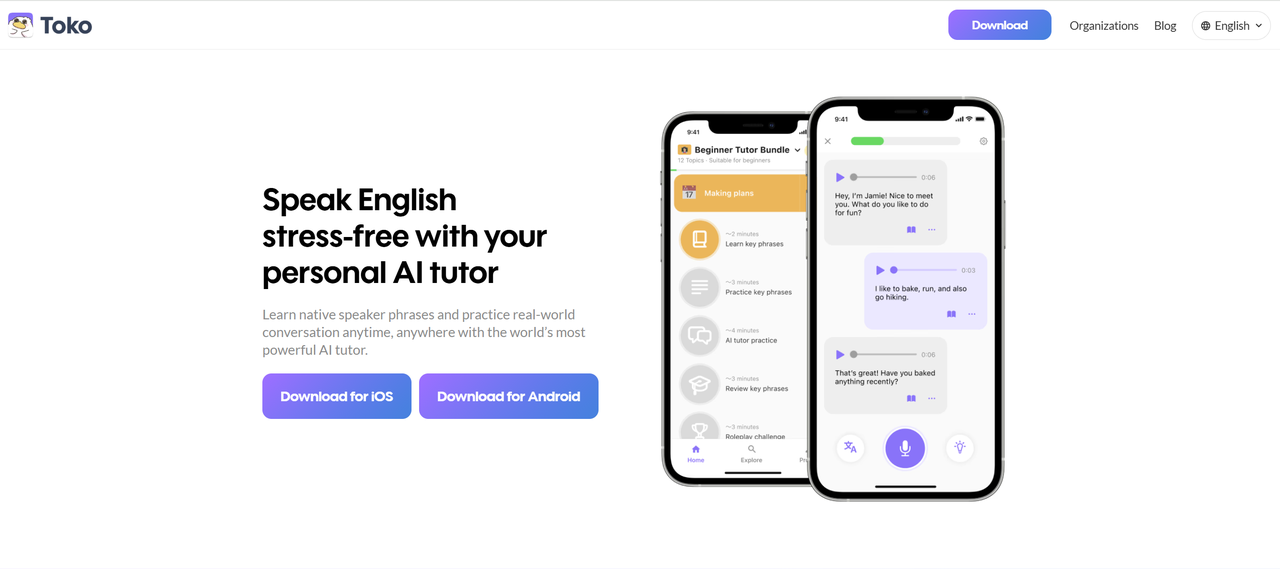
Toko makes practical English its priority. Lessons are built around specific real-life contexts—ordering at a café, asking for directions, or introducing yourself at events.
It’s highly visual, with prompts and images to guide responses, which helps beginners connect words with meaning. Difficulty gradually increases as you progress.
Ideal for travelers and casual learners needing survival English.
Pros
- Practical, scenario-based lessons
- Strong visual aids
- Gentle difficulty curve
Cons
- Limited for advanced learners
- Few business-related topics
ELSA Speak
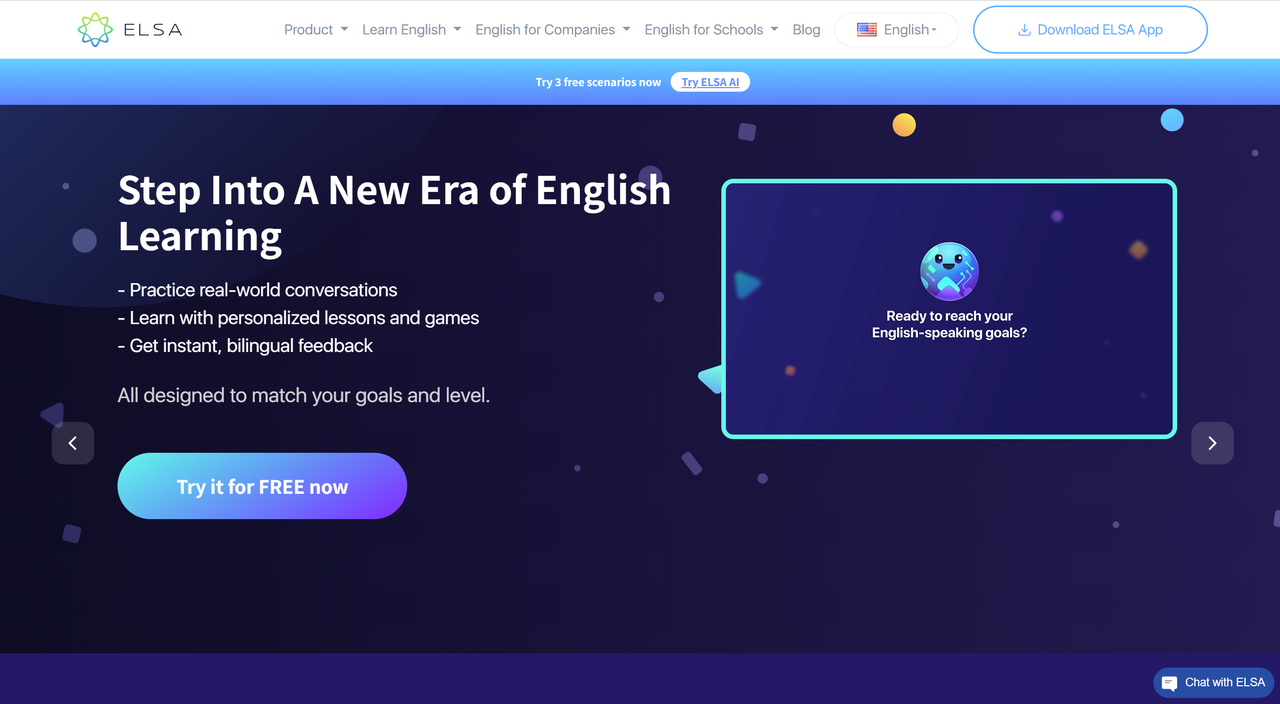
ELSA Speak’s niche is detailed, data-driven pronunciation feedback. It rates your speech on multiple aspects—intonation, stress, and sound accuracy—so you can target problem areas precisely.
Its exercises adapt based on your scores, ensuring you’re always working on your weakest points. The app also tracks long-term progress for clear improvement benchmarks.
Great for learners seeking accent reduction and clearer articulation.
Pros
- Detailed multi-aspect pronunciation scoring
- Adaptive exercises targeting weaknesses
- Progress tracking over time
Cons
- Conversation practice is secondary
- Some features require subscription
Speak Pal
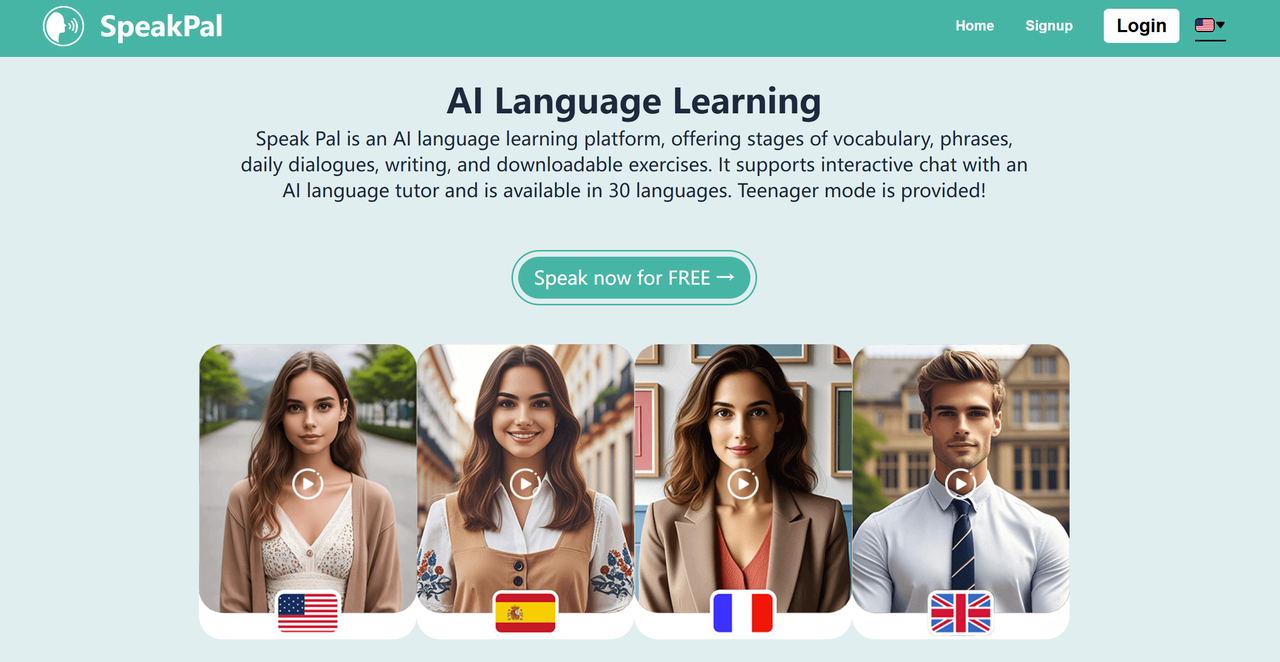
Speak Pal blends language with cultural fluency, teaching you expressions, idioms, and customs alongside grammar. The AI explains cultural nuances mid-conversation, which makes dialogues more engaging and realistic.
You can explore themed chats—like festivals, traditions, or etiquette—that add depth to your understanding of the language.
Best for learners who want to sound natural and culturally aware.
Pros
- Cultural insights with language learning
- Idiom and expression explanations
- Themed conversation variety
Cons
- Less focus on technical grammar
- Some prior vocabulary knowledge needed
Conclusion
Heylama offers a balanced mix of structured lessons and interactive practice, but it’s far from your only choice. From Midoo AI’s adaptive plans to Fluently’s precision pronunciation training, each alternative here brings something unique.
Choose based on whether you want fun gamification, business-focused dialogue, or natural immersion—and you’ll find yourself improving faster than ever.